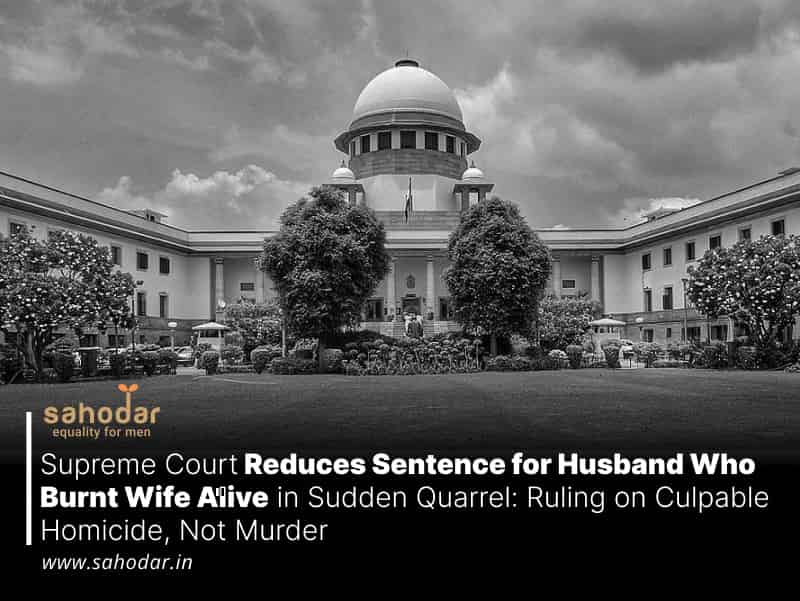The Supreme Court recently altered the conviction of a husband who fatally burned his pregnant wife by pouring kerosene oil on her. The Court reclassified the offense from murder, as per Section 300 of the Indian Penal Code, to culpable homicide not amounting to murder, punishable under Part-II of Section 304 IPC.
Justices Sudhanshu Dhulia and PB Varale, composing the Bench, clarified that when the accused’s actions are not premeditated but occur in the heat of a sudden fight and quarrel, they constitute culpable homicide not amounting to murder under Part-II of Section 304 of the IPC.
“From every available evidence, which was placed by the prosecution, it is a case where a sudden fight took place between the husband and wife. The deceased at that time was carrying a pregnancy of nine months and it was the act of pouring kerosene on the deceased that resulted in the fire and the subsequent burn injuries and the ultimate death of the deceased. In our considered opinion, this act at the hands of the appellant will be covered under the fourth exception given under Section 300 of the IPC, i.e., “Culpable homicide is not murder if it is committed without premeditation in a sudden fight in the heat of passion upon a sudden quarrel and without the offender’s having taken undue advantage or acted in a cruel or unusual manner.”, the Supreme Court observed.
Even though the accused was aware that the act could result in death, the Court ruled that it was carried out without any malicious intent to cause the death of the victim.
“The act of the appellant is not premeditated but is a result of sudden fight and quarrel in the heat of passion. Therefore, we convert the findings of Section 302 to that of 304 Part-II, as we are of the opinion that though the appellant had knowledge that such an act can result in the death of the deceased, but there was no intention to kill the deceased. Therefore, this is an offence which would come under Part-II not under Part-I of Section 304 of the IPC.”, the Supreme Court records.
The Supreme Court has referenced its previous ruling in the case of Kalu Ram v. State of Rajasthan, which presented similar circumstances and issues. In that case, the accused, while under the influence of alcohol, pressured his wife to hand over some ornaments to purchase more liquor. Upon her refusal, he doused her in kerosene and set her ablaze with a match. However, he also made attempts to extinguish the fire by pouring water on her.
In the Kalu Ram case, the Supreme Court adjusted the conviction from Section 302 IPC to Section 304 Part II IPC, noting that the accused did not intend to cause the injuries sustained by his deceased wife due to his actions.
In agreement with the arguments presented by the appellant/accused, asserting that the offense committed would constitute culpable homicide not amounting to murder, the Supreme Court, while modifying the trial court and High Court’s findings, converted the verdict from Section 302 to Section 304 Part II of the IPC.
“To this extent, the findings given by the trial court and High Court will stand modified. We have also been informed that the appellant has already undergone incarceration for more than 10 years. Therefore, he shall be released forthwith from the jail, unless he is required in some other offence.”, the court concluded.

